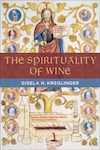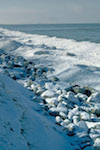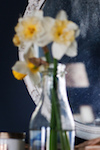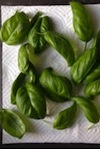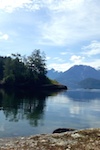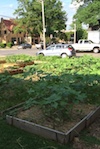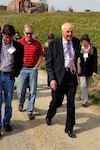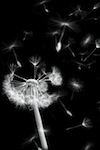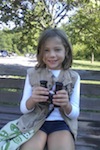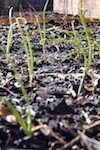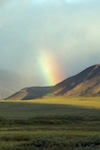Perhaps like these women and the little girl, and maybe like others who feed people as part of a parenting vocation or faith community, I see the garden through the lens of my own faith and call to mothering and being mothered, the garden as a connection to nourishment and solace.
And to redemption. A safe haven where I might receive life and pass it on, or get it back from the edge of death.
















